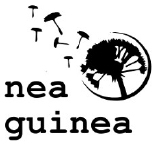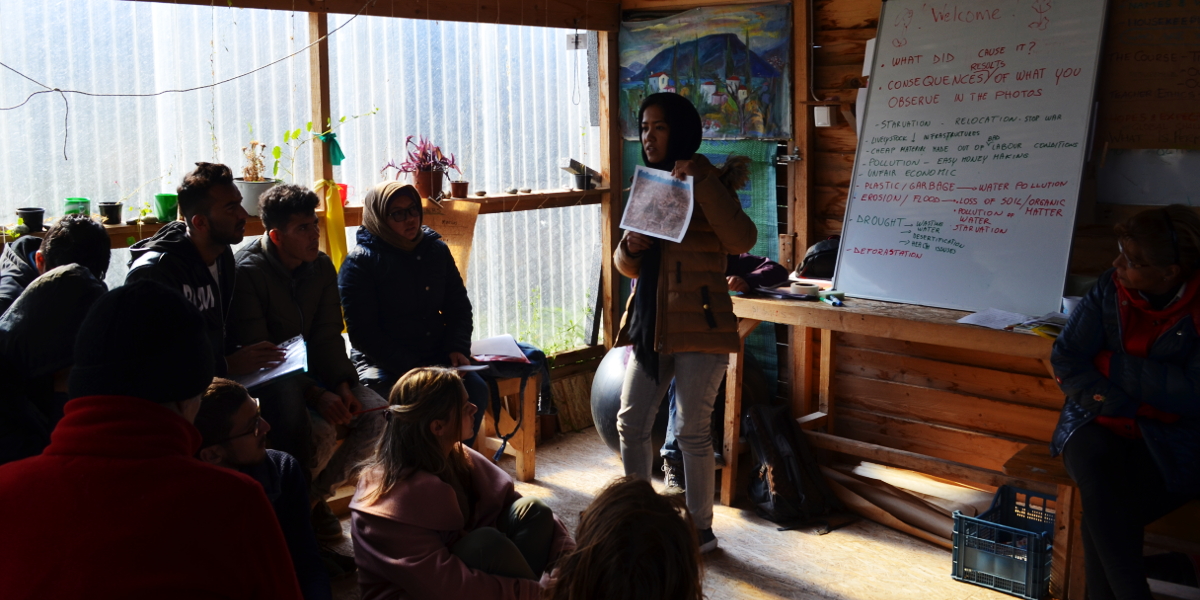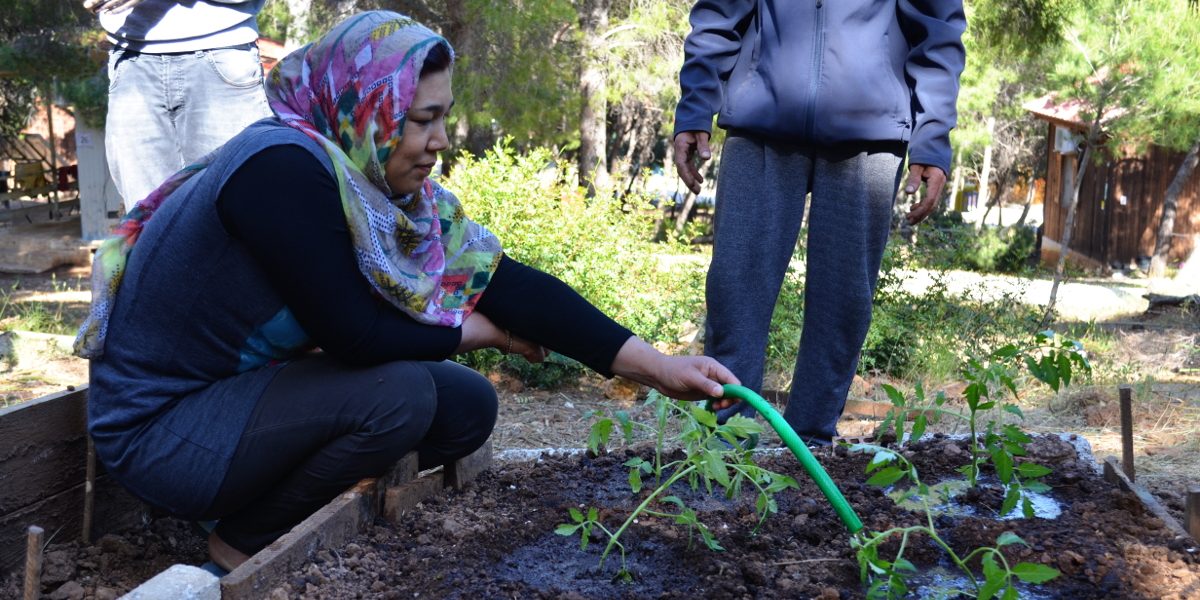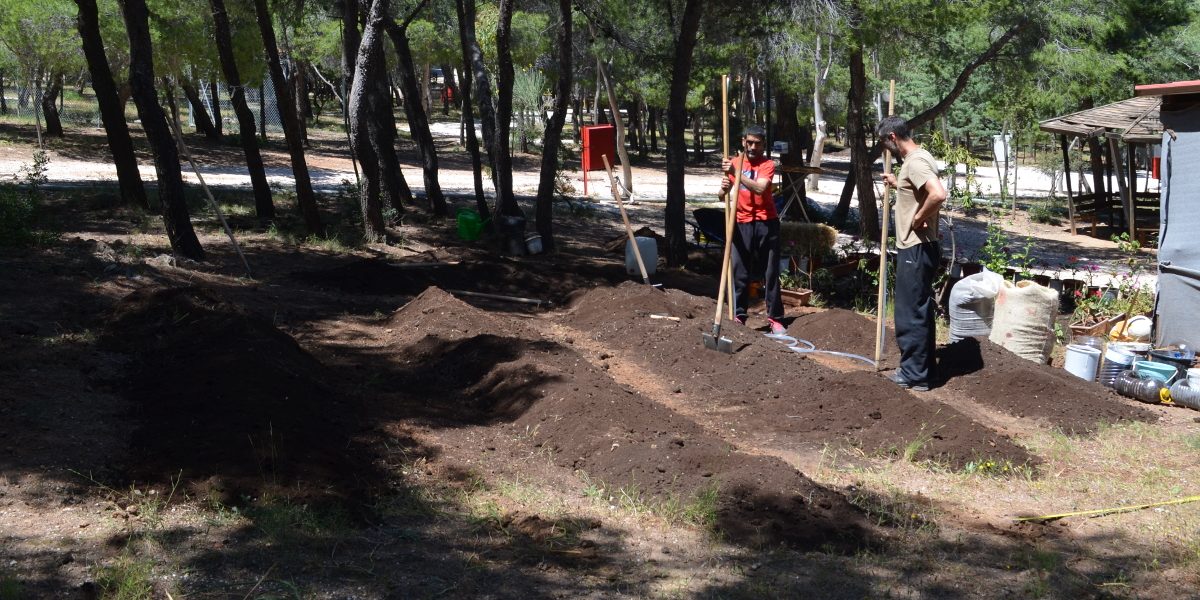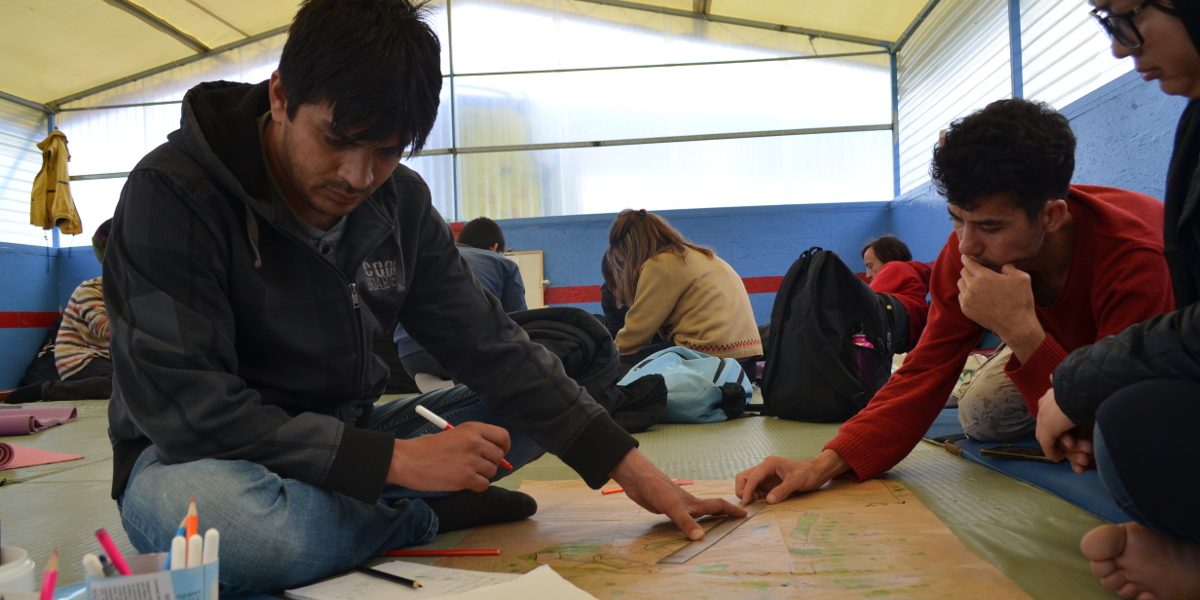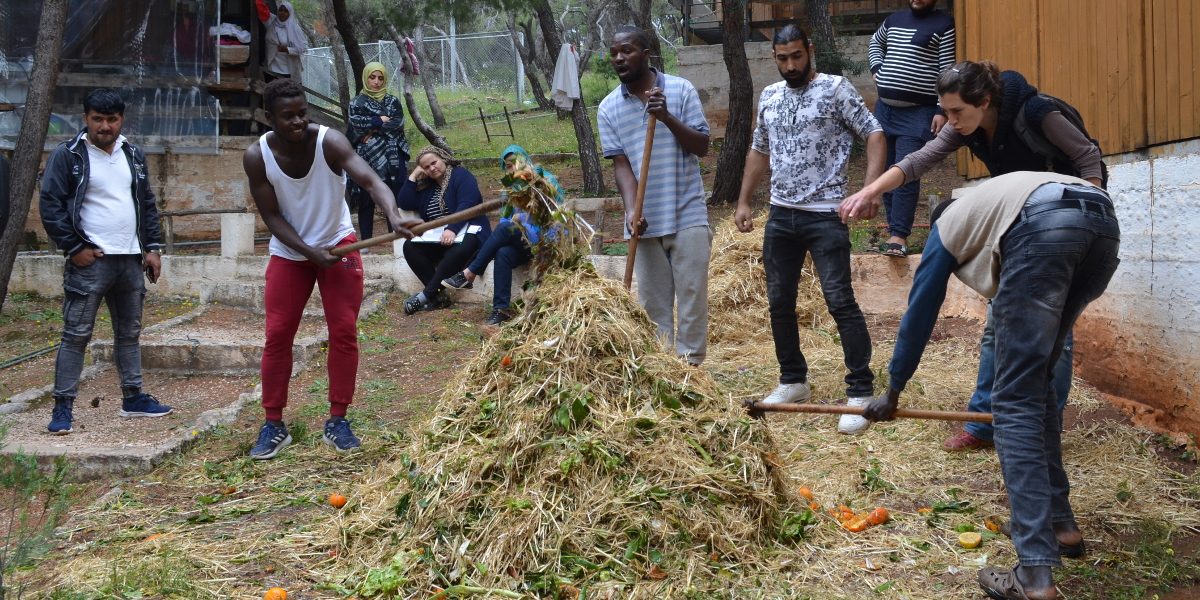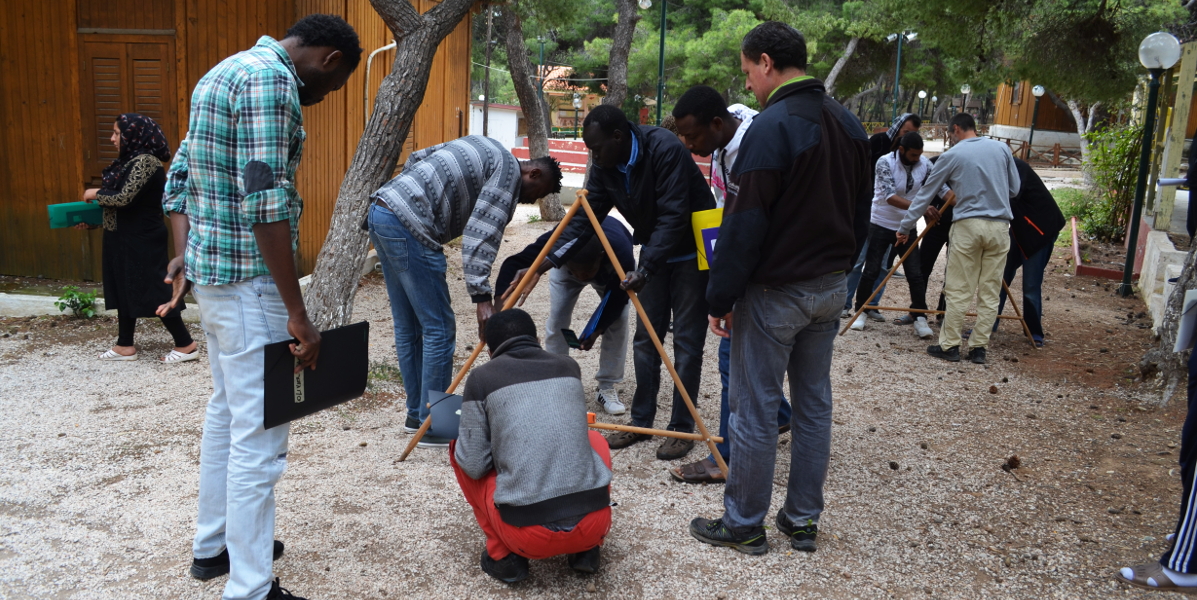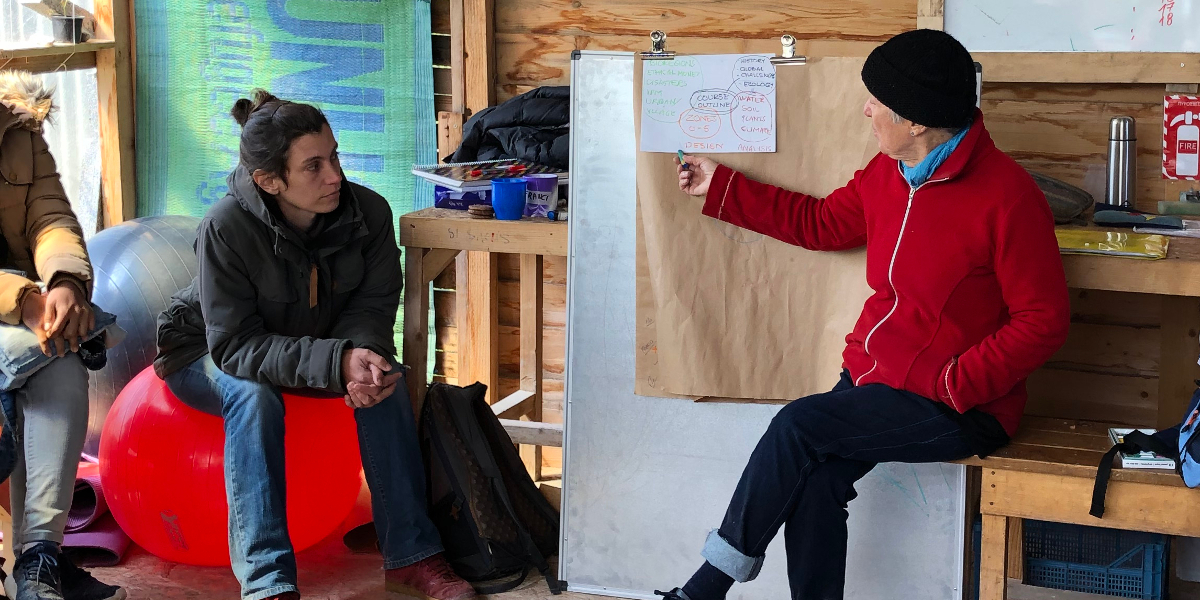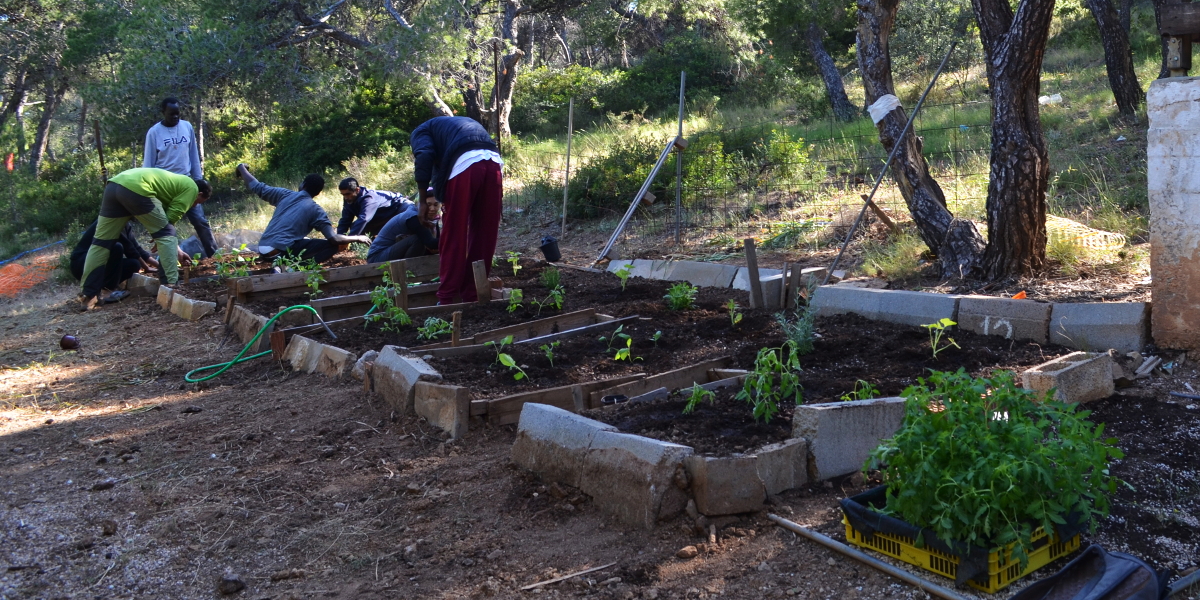Permaculture for refugees
Permaculture design for refugee camps in Greece
Refugee camps are places that are set up in just a few weeks and end up becoming permanent settlements, with no such standards, either in terms of visible or invisible structures. These places rely entirely on external inputs and interventions, while the policies that define their functioning perpetuate dependency and isolation. What is happening in Greece right now is not new, but it is not temporary. Forced mass migrations have been occurring since the beginning of human history and will continue to occur due to climatic or man-made disasters. As these phenomena intensify, it becomes more urgent and important than ever to develop holistic approaches that will enable us to seize the opportunities that accompany the crisis, promoting transformations and regenerative processes at the personal and collective level.
Permaculture design offers a wide range of tools and techniques that can support the transformation of physical and social spaces, facilitating the transition of camps into productive learning communities that in some cases can evolve into eco-communities. By working simultaneously with internal and external landscapes we can shape processes that will enhance personal and collective resilience and self-reliance. Moreover, by applying regenerative design practices we can promote the creation of new meaningful connections between people (both camp residents and locals) and positive interactions with the landscape around them – thus transforming bare damaged lands into productive human ecosystems.
The time refugees spend in the camps ranges from a few months or years to a lifetime. This time is only valuable when these places can give people purpose and meaning. Permaculture planning can support people in the camps in regaining access and control over what is necessary for their survival and well-being and at the same time promote their active participation in all the processes necessary to meet their daily needs. It can provide multiple opportunities for people to tap into their creative potential as they use and share skills they already have or learn new ones. Through collaborative processes that combine responsibility and freedom, these people can slowly regain self-respect and self-reliance and acquire skills and positive socialization experiences that will take them with them wherever they go after the camp.
In this context, New Guinea is developing educational activities in refugee camps and day centres in Greece, with the aim of introducing Permaculture planning and promoting positive changes in the daily lives of refugees. These activities take the form of Permaculture Design Course (PDC) as well as specialized short courses and professional trainings for both refugees and NGO workers in camps.
Our activities aim to:
– provide information that will deepen participants’ understanding of current socio-environmental issues.
– develop participants’ ecological awareness and strengthen their connection with the ecosystem around them.
– help participants to thoroughly understand the principles and applications of Permaculture design in a camp environment and to give them practical experience of different land and community regeneration techniques.
– provide participants with specialised knowledge in areas of need, enabling people to actively participate in the construction, production or organisation to meet everyday challenges.
– enable participants to acquire vocational skills for which there is a local demand and which can be used to generate income.
– build on the knowledge and experience already possessed by the participants and reinforce it with new skills that they can use wherever they find themselves after the camp.
– support people to share the knowledge they have gained with other community members and develop initiatives that will bring about positive changes in the daily life of the camp.
– foster a sense of community, cultural mixing, cooperation and solidarity.
– promote positive interactions and positive feedback mechanisms within the group.
– promote the interaction of the camp with the local community.
The New Guinea team focuses on adapting Permaculture teaching to the needs of people living in camps and developing practices and techniques that are relevant to their specific circumstances. We are working with the Permaculture for Refugees (P4R) project, as well as other initiatives in Greece and aim to develop a local network for Permaculture for Refugees.
